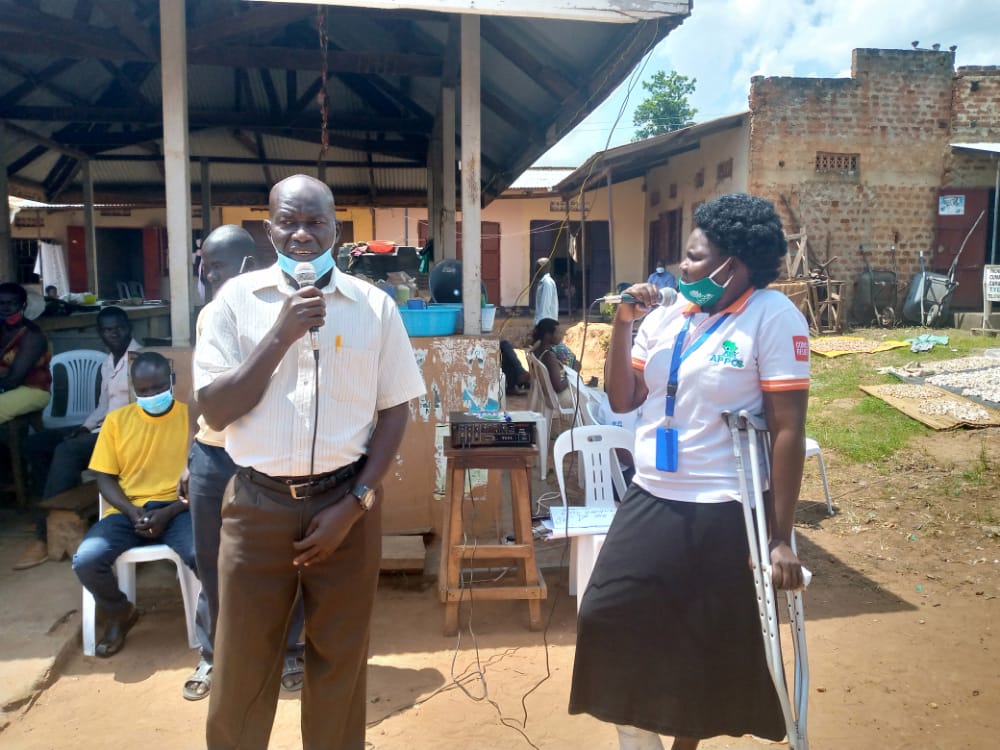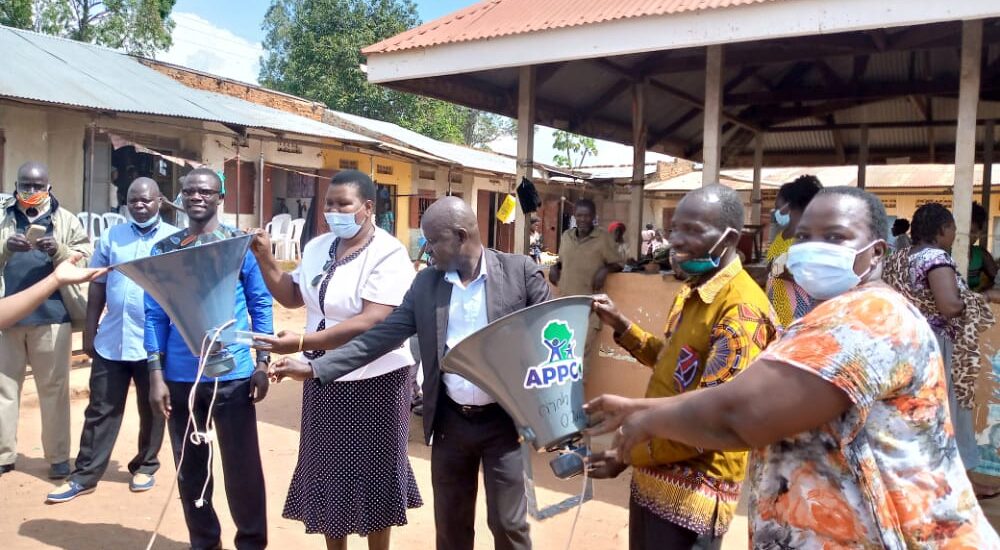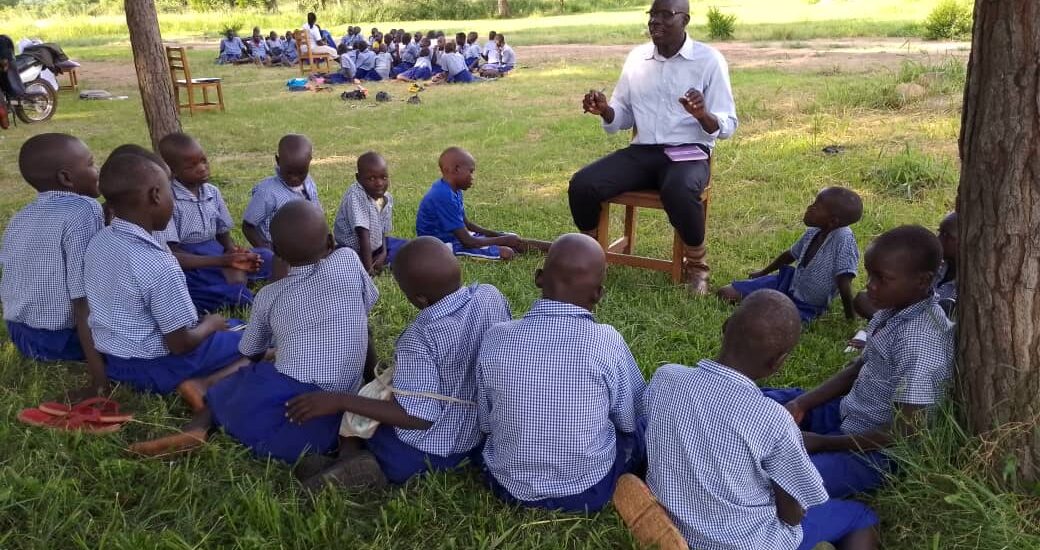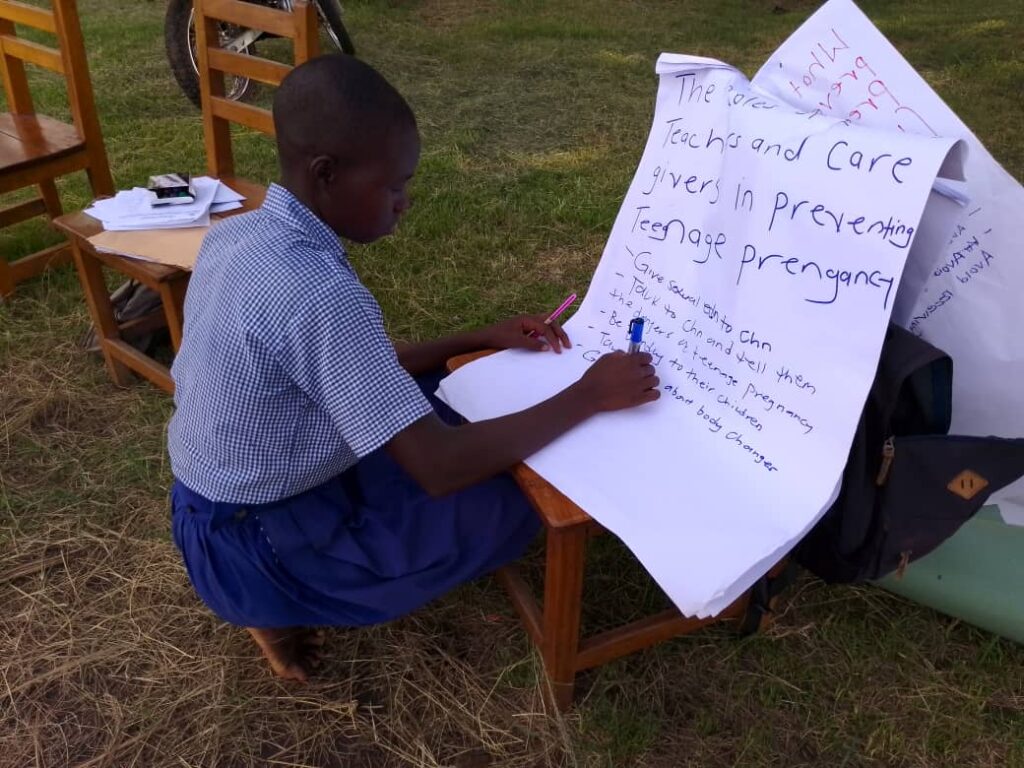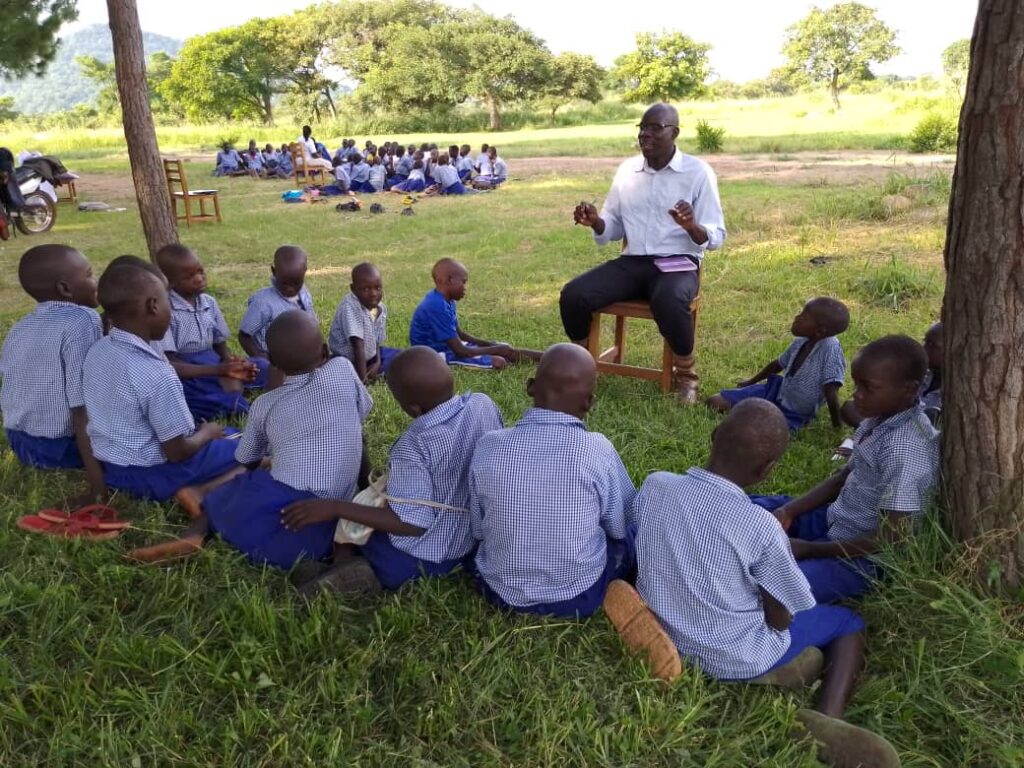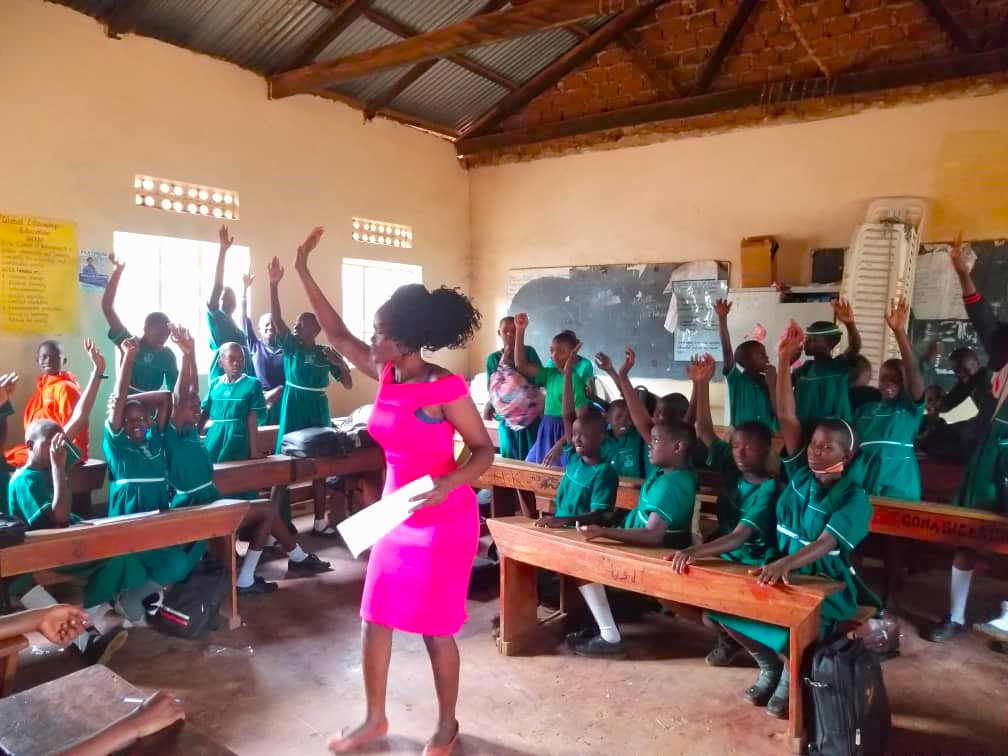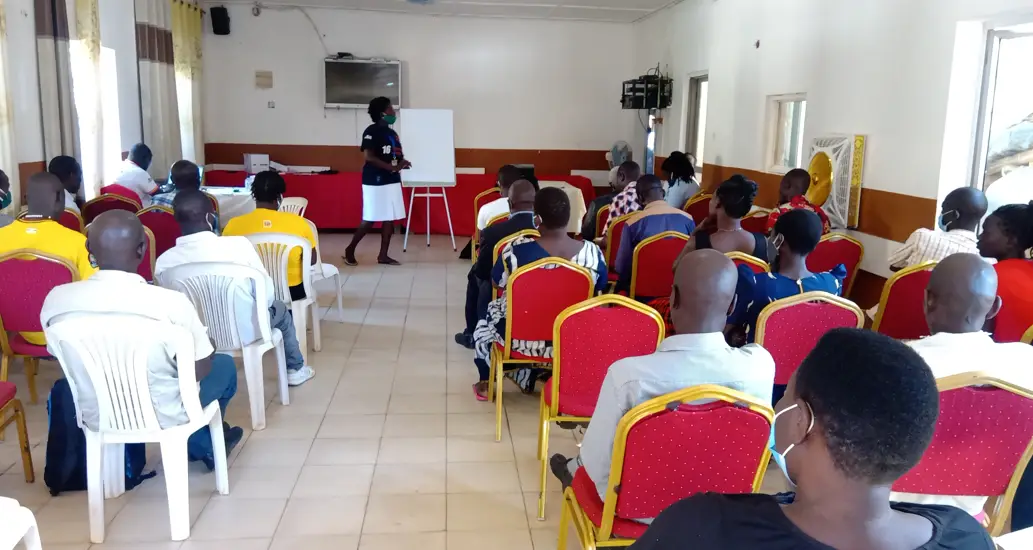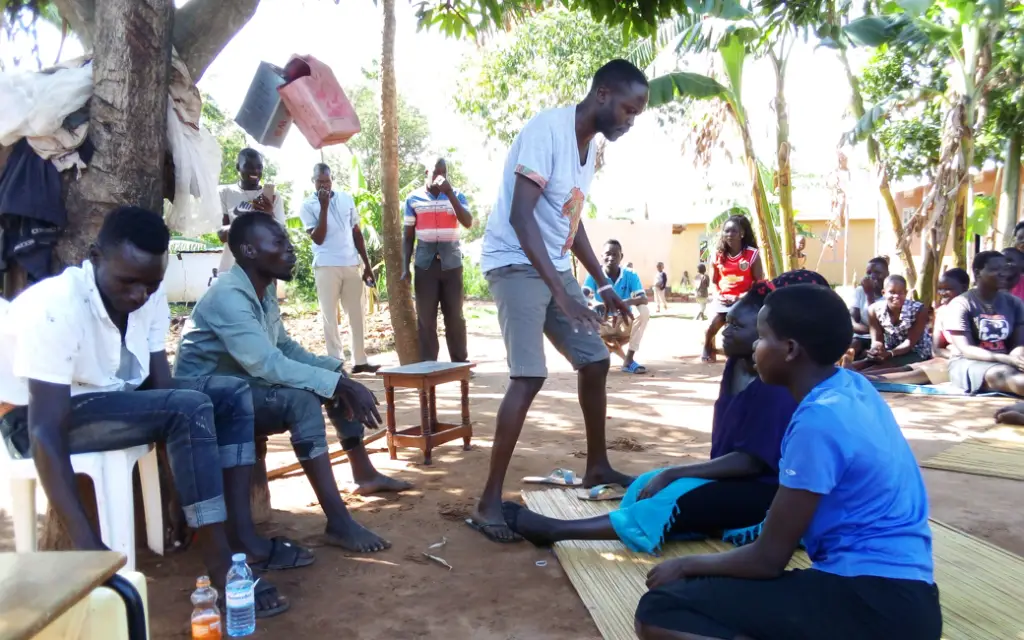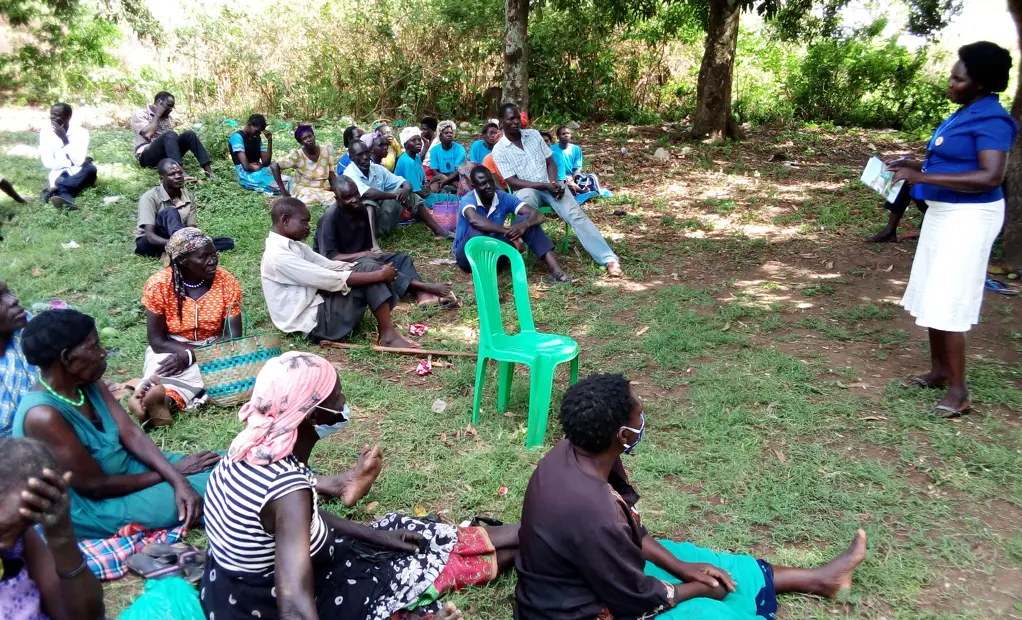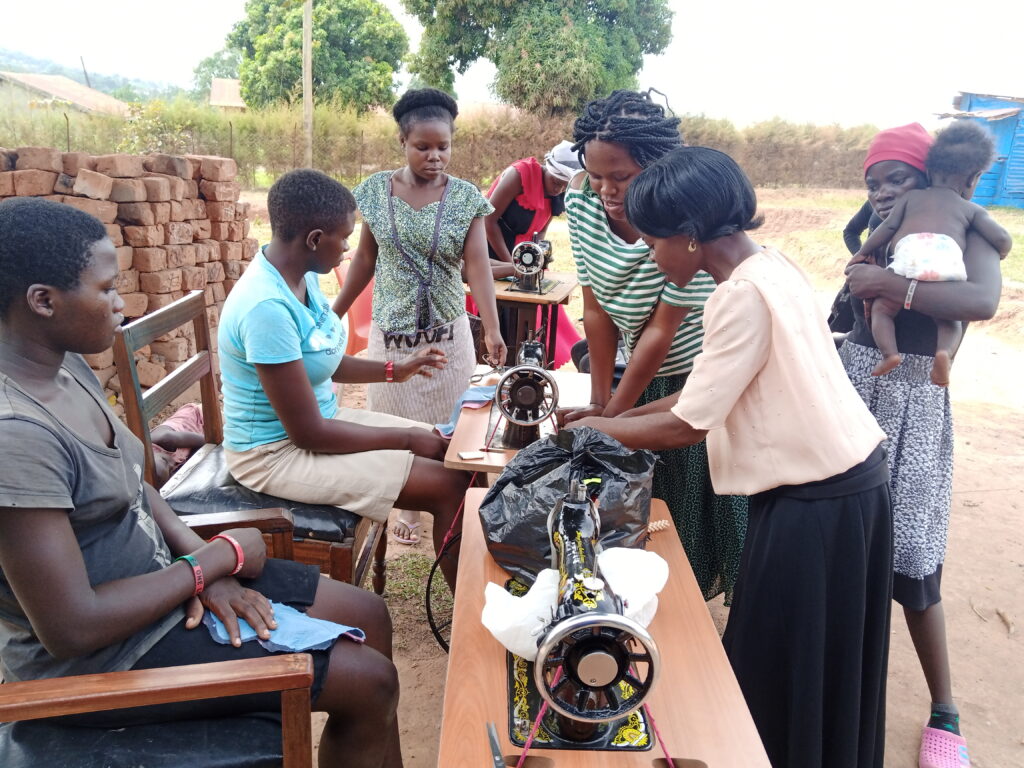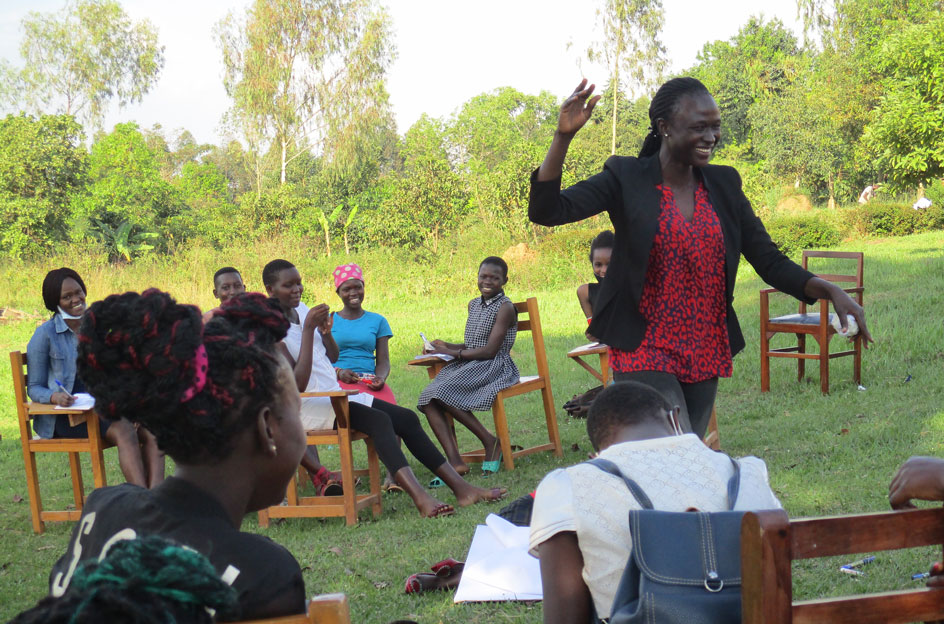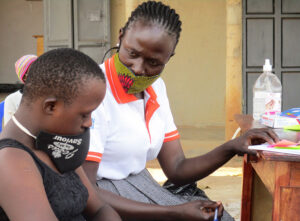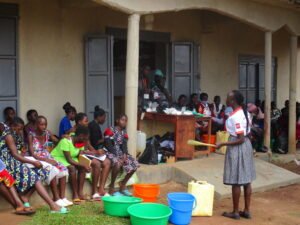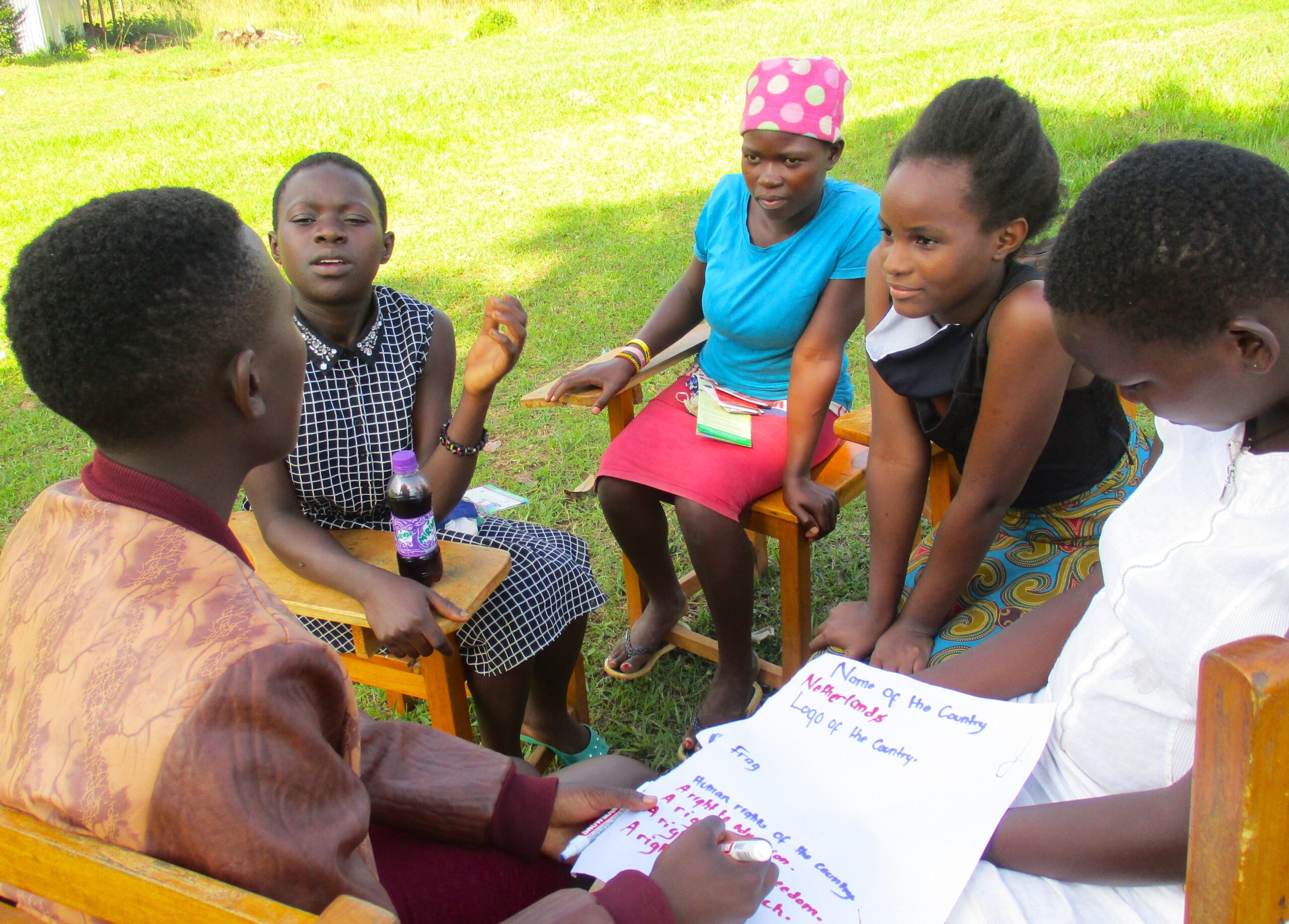COMMUNITY RADIO INTERVENTION
Because of the lockdown, social gatherings were banned and these made it hard to reach some communities. APPCO came up with the idea of using community radios to create awareness within the community. Before the installation of the community radio, a consultative meeting was conducted in
both sub-counties, and members from the communities were selected to spearhead the management and maintenance of the community radio. The organization agreed to have pilot community radios in Unyama sub-county and Bardege division. The community was consulted on this and agreed to manage
these radios. These radios played a role in reaching many people within the communities with the message of Ending GBV. Both the church and the political wing welcomed the approach and this became a tool for conveying information by the leaders to the advocacy of ending GBV.
COMMUNICATION FROM THE PROJECT COORDINATOR
She thanked the LC1 for allowing them to host the radio in his compound and the general public for being positive about the radio. She went ahead to emphasize that the radio is not for the LC1 but for the community. The reason as to why the radio was installed was due to the ban on gatherings and yet there is a need to continue with awareness creation which caused the need for community radio.
The radio management committee was tasked with the management of the community radio and therefore there is a need for community contribution towards payment of bills like electricity and maintenance of the radio. She was glad that there were witnesses from the local government and elected leaders. She emphasized that the radio shouldn’t be used for politics but instead for announcements and adverts for its sustainability.
WHAT THE CDO SAY DURING THE RADIO LAUNCH
The CDO present appreciated the effort from APPCO towards creating communication channels during this hard time of COVID-19. He advised the Community to utilize the community radio and take the owner of the radio to sustain its usage and maintenance. “All community members need to know the referral pathway”. He later used the community radio that evening to re-echo elder persons for SAGE enrolment since most of them had missed out.
